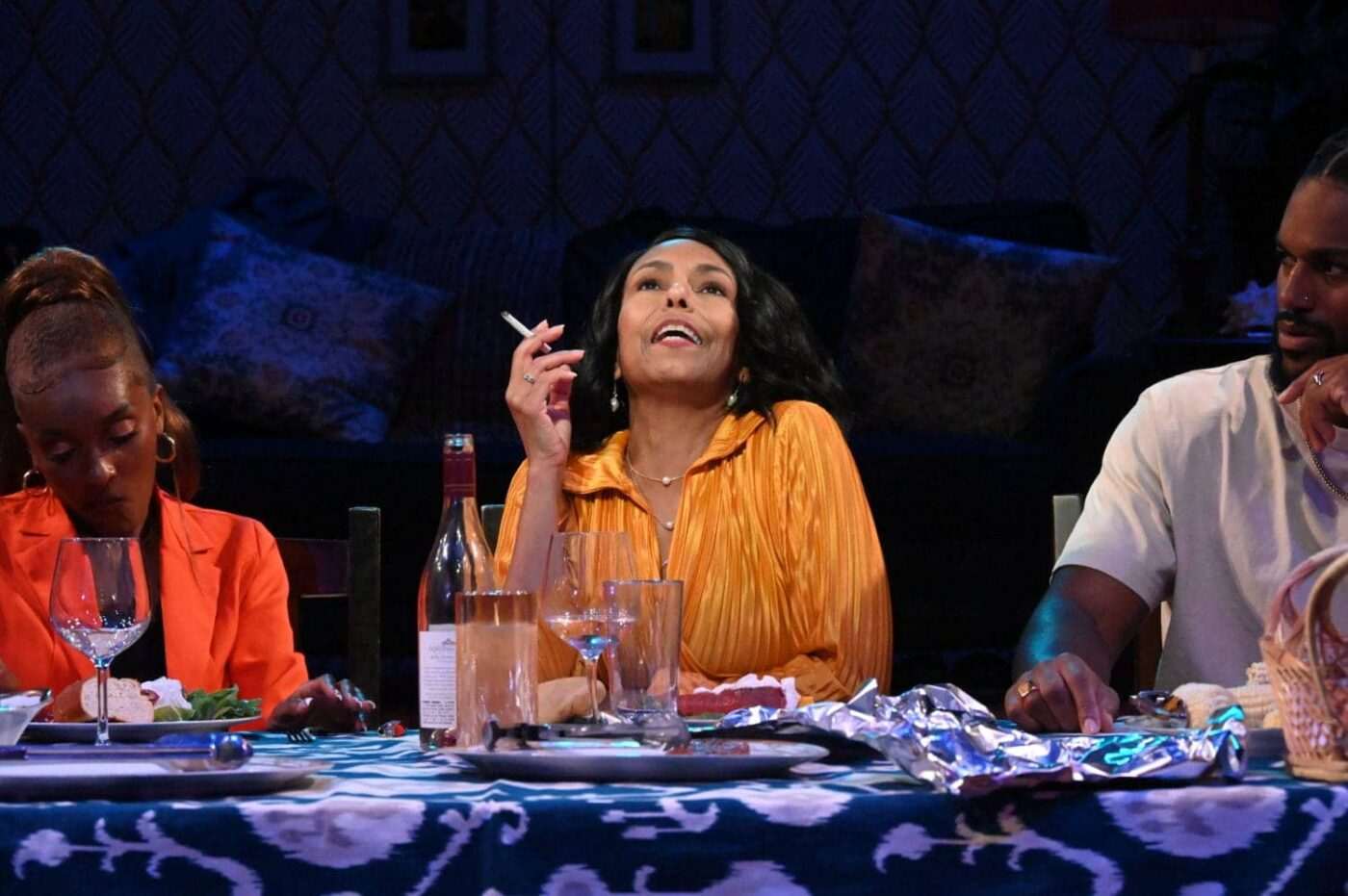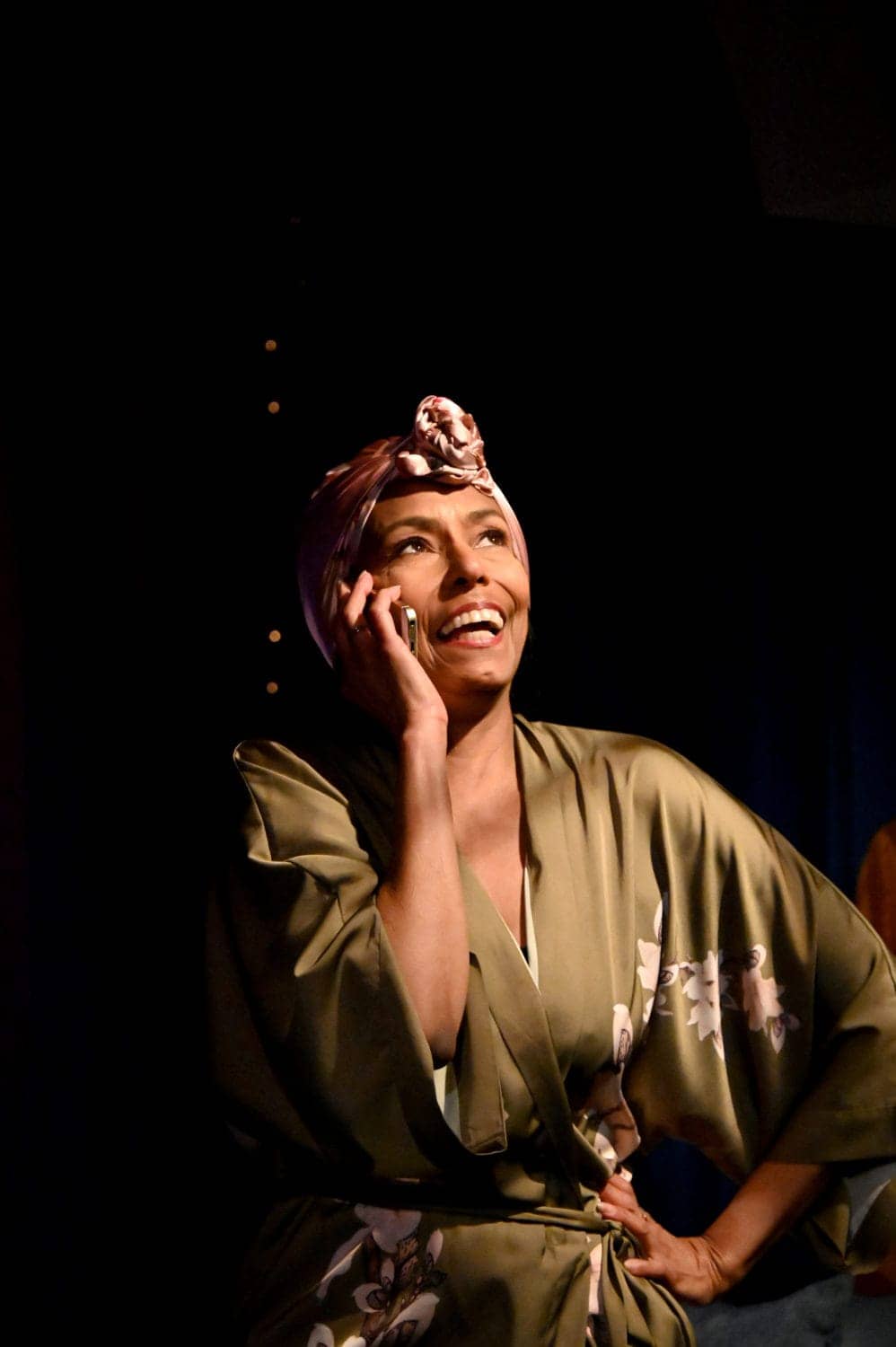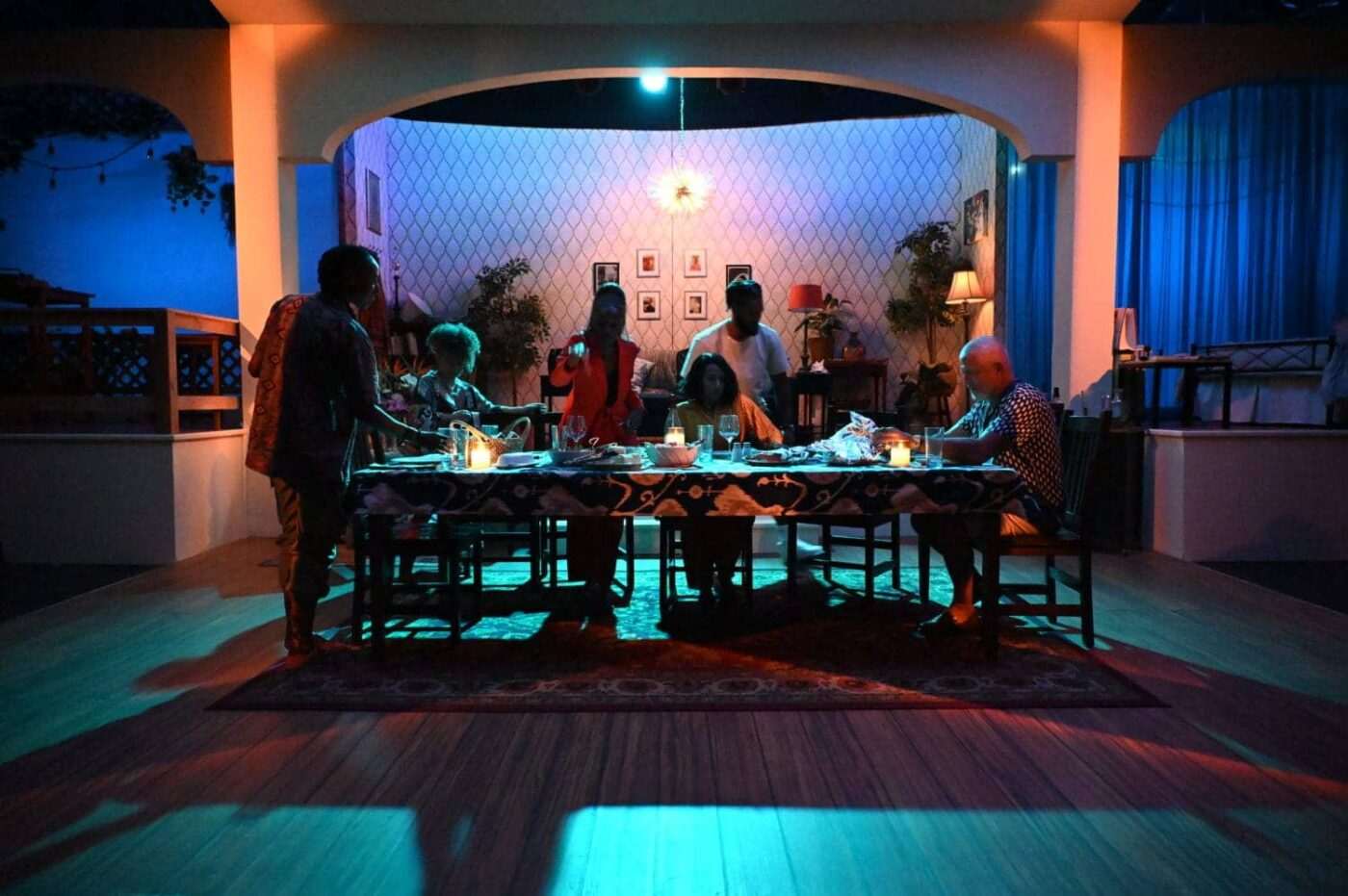
by Minister of Information JR Valrey
“Josephine’s Feast” is a beautifully written play by San Francisco playwright Star Finch that I attended at the Magic Theater in San Francisco last Friday.
The thought provoking dialogue that makes up the script delves deeply into the psychology of grassroots motherhood, parenting, love, freedom, mental health, dysfunctional families and more in the Black community.
So many viscerally taboo subjects were discussed in the play, creating the opportunity for the audience to mentally deal with uncomfortable thoughts and undergo a mental and spiritual metamorphosis in the cocoon of the theater during this production.
Star Finch is definitely a rising force to reckon with in the theater world, and “Josephine’s Feast” is definitely a soon to be classic play that you still have time to catch in its final week. Check out playwright Star Finch in her own words.
JR Valrey: How long will “Josephine’s Feast” be running at the Magic Theater in San Francisco? How could people get a glimpse of your work?
Star Finch: “Josephine’s Feast” got extended so instead of closing, we’ve added three more shows! The final three shows are Friday, Aug. 25, Saturday, Aug. 26, and Sunday, Aug. 27. People can check out my work at StarFinchPlays.com.
JR Valrey: How has the crowd at the Magic Theater responded to “Josephine’s Feast” on its premiere run?
Star Finch: The crowds at Magic have been amazing! I’ve gotten feedback from people from all different backgrounds who felt like the play spoke to them directly or made them think about their mother in a different light. That’s been the biggest theme – either people who are mothers themselves, who tell me how deeply they feel seen and heard by Josephine’s words or people who are really thinking about their own mother’s life and what other dreams she may have had but never shared out loud.
I’ve also been approached by a lot of Black men who’ve told me that the play has made them think deeply about the ways they might not have shown up with their full emotional self in relationships; or they’re opening themselves up to admitting the amount of emotional labor the women in their lives carry on behalf of the family.
Every night has been a special experience, but I have to say that I LOVE when we have a lot of Black women in the audience because the energy in the air becomes electric; the theater becomes a form of church. There’s no better feeling than knowing that the people I wrote the play for are not only receiving it but, more importantly, feeling seen and fed by my words.
JR Valrey: Who are three playwrights that you are inspired by and why?
Star Finch: Funnily enough, I’m not inspired exclusively by playwrights. The playwright I’m most inspired by as a person is Lorraine Hansberry because she was unafraid to speak truth to power in real life; she used her voice on and off the page to uplift Black liberation. But I’m also equally inspired by Toni Morrison’s poetic style of holding multiple truths at once in her fiction, as well as D. Scot Miller’s “Afrosurreal Manifesto,” which put my creative impulses into concrete language and gave me the confidence to continue listening to my own voice.
JR Valrey: Can you talk about the theater cohort that you are a part of? How and when did you get connected?
Star Finch: I’m currently the playwright in residence at Campo Santo and at Crowded Fire Theater in a three-year residency as part of the Mellon Foundation National Playwright Residency Program, which has been such a blessing! But before that, I’ve been a member of Campo Santo since 2014. I connected to them through a good friend named Juan Amador, who I knew as a DJ (DJ Wonway) but he had recently started dipping into acting as well. He knew that I was pursuing playwriting and used his connections to invite me into Campo Santo’s writing group called Clika. Everything just flowed naturally from there.
JR Valrey: How and what inspired you to get into theater? What inspired you to take writing for theater productions seriously?
Star Finch: I initially went to grad school at SFSU for fiction; I thought I’d be writing novels. But then one semester I wasn’t able to get a class I needed and the only thing open was a theater class where we’d have to go see plays and then discuss them. I ended up taking that class and connecting deeply with the professor, Michelle Carter, who would soon become a mentor in my life. I decided to switch to playwriting soon after taking that class. Most of the feedback I was getting in my fiction workshops was that my writing sounded like a play anyway, so it all made sense in the end.
For me theater is like church – it’s a space where all kinds of people can gather in the flesh and process what it means to be human together through live actors. There’s an electric force created whenever humans come together in person without knowing ahead of time what exactly is gonna happen next. I believe it’s important to feel our emotions in a room together – especially in a city that seems so intent on a sterile robotic future. The condos are empty; we’re expected to navigate streets with empty cars driven by computers – it’s madness!
JR Valrey: Behind the scenes I understand that you worked with an intergenerational crew of Black women on “Josephine’s Feast.” Who were they and what was that experience like?
Star Finch: I wrote the role of Josephine specifically for Margo Hall, who is a Bay Area theater legend. So often roles for women seem to disappear once they hit their 40s or 50s, or if they do have a role it’s a small one in the background. I wanted Margo to be able to shine bright and bring out all of her creative weaponry she’s amassed over the years.

And then our director, Ellen Sebastian Chang, is another local legend who is most recently known for her project “House/Full” in Oakland, but her career spans 40 plus years and she’s always been ahead of her time. Ellen actually directed Margo in a play at the Magic Theatre 30 years ago in 1993 – and at that time Ellen was the first Black director to ever work at the Magic.
So to reunite them all these years later at the same spot has been a beautiful experience. The people who worked on my play ranged from their 20s to their 60s, and it just illustrated to me how intergenerational spaces are deeply fertile and spiritual. The ways that the media tends to keep us divided by generation gaps and the various labels attached for marketing purposes is counterproductive to collective liberation. We all have something to learn and we all have something to teach each other.
JR Valrey: How did you cast for this production? What were you looking for in the actors and actresses that you cast?
Star Finch: I wrote the main characters for the actors, as far as keeping them in mind as I wrote. Margo Hall, Donald Lacy, Britney Frazier and Jasmine Milan Williams are all members of Campo Santo, which has always been my homebase. The other two smaller roles went to Tierra Allan and Tre’Vonne Bell because I was already working them through various readings for my upcoming play, “Shipping & Handling.” So it was in many ways a family affair, which I think comes through naturally on stage.

JR Valrey: What concepts and ideas did each of the main characters represent? Why were their characters necessary to building out what you were trying to convey?
Star Finch: At heart all of the characters are just different angles to examine the ways in which we keep our family locked in place by our own expectations of what roles they have to play. In many ways, our family is our first drama where we all get assigned roles at a young age and we’re expected to play those roles for the rest of our lives. The minute someone tries to shift things around or experiment in a new direction, here comes all the judgment and pressure to stay in your place.
The play is also asking everyone to examine the ways in which our “love” is often used to control. Everyone often focuses on their intentions or the end result for justification for their actions, but I’m circling back around to say an adult trying to control another adult cannot be love, because ultimately the root of Love will always be Freedom.
JR Valrey: What was your creative process like when you were developing the script? You dealt with a number of taboo topics like Black men in the Bay typically desiring non-Black women in relationships and lesbianism in the Black community among other things.
Star Finch: I started writing this play in 2020 during lockdown when the world felt unbearably heavy and uncertain. I think it was a time where many people were “recalculating” – you know when you get lost while driving and the maps app starts talking about: RECALCULATING. The whole world felt lost, like we were driving down a road we’d never been on before.
So the play was planted in that sort of soil, and the character Josephine emerged as a woman who is measuring how much time she has left to be active in her life and what SHE wants to do with that time, not what OTHERS might need or expect from her. She’s trying to remember what her own desires sound and feel like, because as most mothers know, it often becomes second nature to put everyone else’s needs ahead of our own.
Anything I write about is something that’s always existed. It may not always be talked about openly, but it’s always been there.
The saying “there’s nothing new under the sun” is an ancient one. My work is all about lifting the veil on all the things we see and know but don’t speak on. Everything that we encounter is about power dynamics, and if we don’t measure from every angle then we’ll never work out the equation.
JR Valrey: Where did you get the concept behind “Josephine’s Feast?” What made you deal with the major theme of the mother, Josephine, feeling like her children robbed her of her dreams in life?
Star Finch: I will say that it’s less about Josephine feeling like her children stole her dreams, and more about her desire for them to grow up. There’s a difference between being a “Mother” to your child when they need you most vs being expected to “parent” your child long into adulthood.
I think what drains so many mothers of their life force in when their children refuse to grow up. That’s the part that makes Josephine feel like she’s being held captive.
They have their own lives, but they still rely on her for so much. They have their own friends and adventures, but they expect her to remain at home and not take any risks or new adventures of her own. So many audience members have shared with me that when they text their kids – the kids take their sweet time responding. But if their kids text them and “mom” doesn’t respond immediately – all of the sudden they’re blowing up her phone like it’s the end of the world – like where are you? what are you doing? why didn’t you text me back?! type madness.
This play is really just saying: Let’s all get free. If the family unit aint operating from a place of freedom, then how can we ever expect an entire society to do so?
JR Valrey, journalist, author, filmmaker and founder of Black New World Media, is also the editor in chief of the San Francisco Bay View newspaper. He teaches the Community Journalism class twice a week at the San Francisco Bay View newspaper office.





